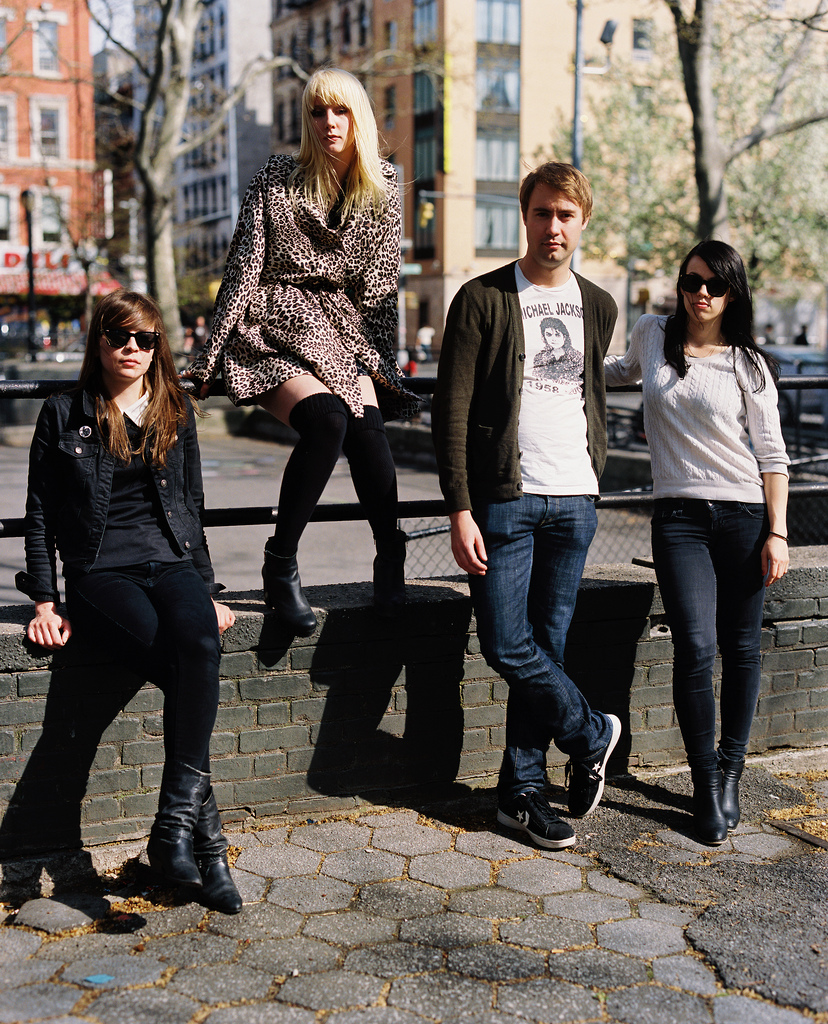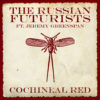Photo by Jesse Jacobs
Words by Mish Way of White Lung
I don’t know why I started figure skating when I was a child. All I know is that the sport was my entire life until I was 16 years old. I trained every day after school from 3:30 p.m. until 6:30 p.m. I trained before school on Tuesdays and Thursdays at 5 a.m. I had to do Pilates, cardio, swimming lessons tone my muscles, and jazz dance–as well as ballet–with a Russian woman named Anya, who taught me how to contort my hips outwards and twirl my arms like a swan.
At home, when I wasn’t skating, I was thinking about figure skating. I kept journals where I reported every jump and spin I had done that day and the progression of moves I was still working out. I rarely just sat and watched television. At my choreographer’s request, I stood in front of our family TV with a cane nestled in my arched arms, across my shoulder blades, so that I could work on my posture. I hung onto the frame of our fireplace and pulled my leg above my head over and over to maximize my flexibility. I replayed my routines in my sleep. At a very young age, I had mastered the art of self-discipline and internal competition.
As a sport figure skating is graceful and intense yet relies on individualized pressure and internal blame. Unlike team sports where you can often pass off your own inaccuracies onto the fault of another team member, figure skating is just you. You don’t work that spin, you don’t nail that footwork, you don’t stick that landing–it’s all your fault. I can’t tell you how many times I walked off the ice in a complete rage at myself for not performing a flawless routine. I’d grab my rubber guards off the side boards and chuck them across the hallway as I stormed back to the dressing room, cursing myself as my coach held my hand, trying to get me to relax. I’d still win the competition or at least, grab the bronze, but that wasn’t good enough. It was about doing it perfect, not what medal I received. I never missed a competition due to injury. I just performed even if I was told not to. I’ve always put great amounts of pressure on myself. I have always been an intense person. I’ve always internalized my anger and inflicted it inwards.
For me, figure skating did not only teach me how to internalize blame and self-discipline, but it shaped my understanding of body image, beauty and gender. When in competition, a skater is not only awarded points for her technical merit, but also her artistry on the ice. Under the umbrella of artistry falls grace, poise, her emotional connection to the musical routine as well as her appearance: hair, makeup, costume and physique. Judges will tell you this is not true, but it certainly is.
Luckily for me, I did not have a “crazy mother†like most of the girls I competed against. My mother was supportive of my athletics, shlepping me to and from practice every day, designing costumes for me, sitting through my rehearsals and encouraging me emotionally when I was struggling. Sure, my mother also loved standing up in the heated area with the other mothers sipping coffee and gossiping while their daughters trained, but my mother did not treat competitions like beauty pageants. My costumes were always simple. My hair pulled back off my face in a bun, glued to my head with gel and hair spray. While the other girls were being doused in glitter, self-tanner and fake eyelashes in the crammed dressing room, my mother only let me have a little blush and lipstick.
“It’s about what you do on the ice, not how you look. As long as your hair is out of your face and your outfit is classic and clean,” she would say. “Now, don’t touch your hair and get out there.”
In individualized feminized sports the seemingly vicarious relationship between mothers and daughters is often painful and disquieting. You can tell when certain adults are living through the double axels and glitter of their successful, competitive children. It always made me uncomfortable. Even as a kid, I remember watching my fellow competitors get yelled at and bulldozed by their buxom mothers as they teased their daughter’s hairdos. We were kids. Maybe 12 years old. It was just so intense. We put enough pressure on ourselves on the ice. The last thing our pre-teen psyches needed was pressure in the powder room about our tacky makeup and hair.
And then, there was the body thing: feeling fat. Like ballerinas, figure skaters have to maintain a certain physique, which is produced naturally with the intensity of your training schedule. Your body is your instrument and works like a machine. I had no chest and slender arms yet muscly thighs and strong calves. I was all bottom. I could strangle a horse with my thighs. I remember when I quit figure skating. I got tits, a real ass and my body started to change. It freaked me out. I panicked. I remember being 16 years old, out in the yard in a bikini and I caught a glimpse of my body in the reflection of our sliding glass door. I had, what appeared to be, cellulite.
I’ll never forget that image of myself. It fucked me up. All girls have a moment like this and it stays with us well into our adult years, even when we know better. I never saw my body the same way ever again.
When I was skating, I did not obsess about my weight because I was always fit. It was only when I quit that it became something I worried about. My mother would tell me that I had to start doing something physical. I couldn’t just sit in my room all day playing guitar. I didn’t listen. When I started a band and people began to care about that band, I was tossed back into the public eye. People watching you perform. I’ve known this world since I was a child and it does not scare me. I thrive on it. I like it. I’m never going to sit here and pretend I do not like to have people watch me perform, because I do. However, being the object lends itself to criticism and eventually, twisted self-doubt. We live in a media saturated world that relies on immediate press to propel one to the forefront of their game. I’m used to seeing photos and videos of myself circulate around the internet. I’m used to reviewers talking about my body, which is arguably sexist. (Have you ever seen a review that mentions Danny Brown’s figure or Mac DeMarco’s stomach or Carson Cox’s weight? No.) As a woman, I understand that my body is on display just as much as my talent, especially since I have no instrument to hide behind. I can deal with this reality, even if I do not accept it.
I still have that self-disciplined child inside me. She’s the one that keeps me working hard and striving for more. She’s the one that gets pissed off when White Lung is in the studio and my voice feels off, when I can’t produce the sound I want. She’s the one who comes down on me when it’s 7 a.m. and I’m high as a kite, trying to finish those last few deadlines. I need her inside me to keep me going. I wouldn’t trade my history on the ice for anything. I’m better for it.
White Lung’s latest album, ‘Sorry’, is available now through Deranged Records. The previous essay is an expanded version of a piece from our summer issue, which will be available through this site tomorrow.





